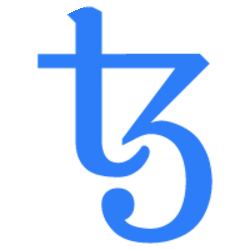Manchester United Launches ‘Fantasy United’ Game on Tezos Blockchain
XTZ/USDT
$12,937,363.78
$0.4086 / $0.3701
Change: $0.0385 (10.40%)
+0.0013%
Longs pay
Contents
- Manchester United has announced the launch of “Fantasy United”, a Web3-based football game on the Tezos Blockchain.
- Fans can manage virtual teams of Manchester United players and engage with digital collectibles like player trading cards.
- The trading cards update in real-time, offering an immersive experience intended to strengthen global fan engagement through digital platforms.
Discover how Manchester United is revolutionizing fan engagement with their new Web3-based football game, “Fantasy United,” leveraging Tezos Blockchain technology.
What Does “Fantasy United” Offer to Fans?
The game features Player Trading Cards in Classic, Rare, and Ultra Rare editions, which allow fans to build virtual squads of five players. These cards update based on the athletes’ real-world performances, making the fantasy experience even more dynamic. Fans can compete with friends, join mini leagues, and earn points tied to player statistics from actual games. This integration facilitates a more profound connection between fans and the team’s real-world performance.
Fostering an Engaged Fan Community
Manchester United aims to nurture a vibrant community through this innovative blockchain game. Sunil Singhvi from Tezos R&D Center Trilitech pointed out that the continuously updating Player Trading Cards and Fantasy United game exemplify groundbreaking applications of blockchain technology. By offering real-time updates and competitive interactions, the club hopes to deepen fans’ involvement.
Building an Active Fanbase Through Digital Collectibles
Manchester United’s ambition goes beyond merely offering a game; it seeks to create an active online community of football enthusiasts. The club’s digital innovation director, Ronan Joyce, emphasized that the game’s Player Trading Cards encompass the entire first-team squad and update as the season advances. This evolving feature is designed to retain fan interest and foster continuous engagement throughout the year.
Key Takeaways for Fans
Players can purchase trading card packs containing seven cards for £3, with early access granted to owners of “The Devils” collection. Fans can assemble virtual teams, monitor real-time player stats, accrue points based on live performances, and participate in mini leagues against friends. By merging the virtual excitement of fantasy football with real-world performance data, Manchester United aims to offer a uniquely interactive fan experience.
Conclusion
Manchester United’s foray into the Web3 arena with “Fantasy United” exemplifies their commitment to leveraging cutting-edge technology to engage fans. The game’s real-time updates and interactive features offer a fresh way to experience football fandom, bringing a novel dimension to how fans interact with the sport. As blockchain technologies evolve, such digital initiatives are likely to become integral in enhancing fan experiences worldwide.
Comments
Other Articles
Bitcoin Price Analysis: Will the Uptrend Continue?
2/27/2026
Ethereum 2.0 Update: How Will It Affect the Crypto Market?
2/26/2026
The Coming of Altcoin Season: Which Coins Will Stand Out?
2/25/2026
DeFi Protocols and Yield Farming Strategies
2/24/2026
